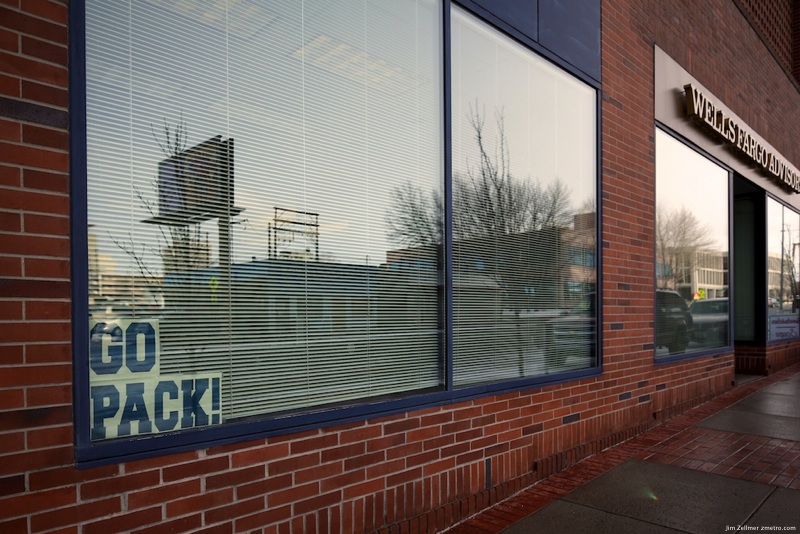Both Matt and myself have been covering the tragic events surrounding the Tsunami in Japan. I have left Japan now but Matt is still there and headed back into the disaster zone to do more reports. I’m sure both of us will talk more about what it was like later on, but for now the story is the priority.
Category: Current Events
Bond king’s Lear-like Treasuries renunciation
At the end of June, the Federal Reserve will no longer be the biggest buyer of US Treasuries. But one notable investor has already said Hasta la vista.
Pimco’s flagship $237bn total return fund, managed by Bill Gross, whose status as bond king has been synonymous with the 25-year bull market in Treasury debt, pulled the plug on holding US government related securities in February, it emerged this week. Last month his fund eschewed holding US government related debt, having had 12 per cent of the fund’s portfolio in Treasuries in January.
Given the record of Mr Gross, one cannot ignore the decision. Since the total return fund began in 1987, it has generated an average annual return of 8.42 per cent versus the 7.27 per cent gain in its benchmark, the Barclays Capital US Aggregate index.
The move is a bold one. Given that the Barclays Aggregate has a Treasury weighting of 40 per cent, the decision by Mr Gross to exclude government holdings means he is seriously underweight his benchmark, or “bogey”.
Dollar’s haven status hangs in the balance
Long seen as a place of safety in times of turmoil, the dollar may be losing its haven appeal.
Soaring oil prices, driven by upheaval in the Middle East, falling equities and elevated volatility have all made investors uneasy. A flight to the dollar usually accompanies increased risk aversion.
This time, though, while the traditional havens of the Swiss franc and the yen have benefited, the US currency has suffered.
“It seems the dollar’s haven status has vanished,” says Steve Barrow at Standard Bank. “And, even for long-term dollar bears like ourselves, this is a worry.”
The main reason for the dollar’s underperformance, say analysts, is concern about the effect of rising oil prices.
The dollar has dropped to a record low against the Swiss franc and fallen 2 per cent to Y81.82 against the yen in the past two weeks, just shy of the all-time low of Y79.7 it hit against the Japanese currency in 1995. It has also lost ground against the euro and sterling.
The fear is that higher oil prices will lead to a transfer of funds from oil-importing countries to the sovereign wealth funds of oil-exporting nations.
Why Isn’t Wall Street in Jail?
Over drinks at a bar on a dreary, snowy night in Washington this past month, a former Senate investigator laughed as he polished off his beer.
“Everything’s _______ up, and nobody goes to jail,” he said. “That’s your whole story right there. Hell, you don’t even have to write the rest of it. Just write that.”
I put down my notebook. “Just that?”
“That’s right,” he said, signaling to the waitress for the check. “Everything’s ______ up, and nobody goes to jail. You can end the piece right there.”
Nobody goes to jail. This is the mantra of the financial-crisis era, one that saw virtually every major bank and financial company on Wall Street embroiled in obscene criminal scandals that impoverished millions and collectively destroyed hundreds of billions, in fact, trillions of dollars of the world’s wealth — and nobody went to jail. Nobody, that is, except Bernie Madoff, a flamboyant and pathological celebrity con artist, whose victims happened to be other rich and famous people.
Saturday Afternoon Ice Fishing Panorama: Madison

Panoramas and photos from Saturday’s Pro-union & Tea Party rallies at the Capitol can be seen here.
Packer Fans

The “National Insecurity” of Imported Oil
Getting America off imported oil is always urged in the context of national security. No matter how often that refrain is repeated, however, it always points toward how much imported oil American motorists use.
It’s never about the amount of oil imported into the United States, refined into numerous products and shipped back out of the country. Nor are people arguing that we need to quit using imported oil for manufacturing concerns – like making fertilizers to grow corn, to make into ethanol to put into our gas, so we can quit importing oil. (That’s the most comical circular argument currently making the rounds.) But we also use oil for things like asphalt for our roads, and in the plastics industry, and even the most ardent “get America off imported oil” advocates don’t talk about constraining those industries.
In reality, the country from which we import the most oil is Canada. And I’m fairly certain that we aren’t too worried about the national security aspect of bringing that oil into America, now or in the future. Yet we’re still hearing the constant mantra that this is a national security issue, and that’s what troubles me most. And, if you own one of the nation’s 240 million vehicles, the “national insecurity of imported oil” refrain should trouble you, too.
How the crisis catapulted us into the future
Did the financial crisis change very much? That was my question as I went to the annual meeting of the World Economic Forum in Davos last week. The answer is: yes. Above all, it has accelerated the arrival of our future. Even for the winners, this is quite a shock.
It is three and a half years since the financial crisis began and a little more than two years since it reached its worst. Bob Diamond, chief executive of Barclays, gave the financial sector’s thanks to governments for the rescue. Now the mood is one of wary optimism. According to the International Monetary Fund’s World Economic Outlook update, global output grew in 2010 by 5 per cent, at purchasing power parity, and 3.9 per cent, at market exchange rates. This contrasts with declines of 0.6 per cent and 2.1 per cent, respectively, in 2009. The IMF expects growth to slow only slightly to 4.4 per cent at PPP and 3.5 per cent at market exchange rates, in 2011. Optimism continues to reign.
With the crisis fading into memory, how will historians assess its legacy? Journalists do not have the luxury of distance. So here are my guesses. I will start with possible turnrounds.
The crisis was neither the beginning of a depression nor the end of capitalism. But it has caused a tightening of financial regulation, particularly of banks, though this has occurred within the pre-existing intellectual and institutional framework. After three decades of deregulation, movement is in the opposite direction, though not without resistance.
Aung San Suu Kyi
The night before I am due to meet Aung San Suu Kyi, I take a battered taxi to the ancient Shwedagon Pagoda where it all began. It was here on an August morning in 1988 that the daughter of General Aung San, Burma’s independence hero, gave her first big speech, an address that was to plunge her into the cauldron of Burmese politics.
Although she was naturally reserved and the crowd was extraordinarily large – anything between 300,000 and 1m people – she spoke without apparent fear. Behind her was a portrait of her father, the Bogyoke, or “big leader”, assassinated at the age of 32, only months before his dream of Burmese independence was realised.
“Reverend monks and people,” Suu Kyi, then 43, began, asking for a minute’s silence for the 3,000 democracy protesters gunned down or hacked to death in that momentous month of revolution and suppression. “I could not, as my father’s daughter, remain indifferent to all that is going on,” she said, launching what she called “the second struggle for national independence”. Although she sought reconciliation over conflict, the underlying message was clear. Her father had liberated Burma from the British. She would help liberate it from Burma’s own generals.
Antitrust bulldog Gary Reback pushes Google probe
In the 1990s, attorney Gary Reback helped goad the Department of Justice into launching the landmark antitrust lawsuit against Microsoft Corp. by hauling willing witnesses and damning information before any government body that would listen.
Reback, of Menlo Park law firm Carr & Ferrell LLP, is now waging a similarly relentless campaign against a technology giant of this era, Google Inc.
In an extensive interview with The Chronicle, he argued the Mountain View search company is engaging in a host of anti-competitive behaviors that are no less egregious than the earlier actions of Microsoft.
He also claims the Federal Trade Commission recently backed off an inquiry into certain of Google’s practices at the behest of the DOJ. It’s known to be conducting a separate investigation into, and possibly preparing to block, the company’s proposed acquisition of travel data company ITA Software. (Read on for his take on what that means.)